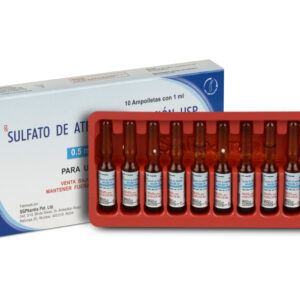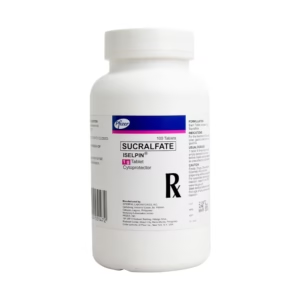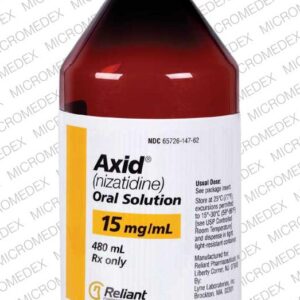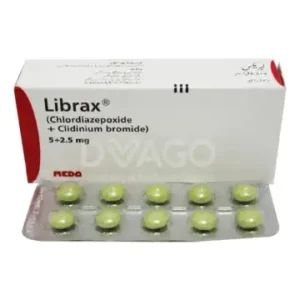-
Fosaprepitant
Fosaprepitant is an antiemetic used to prevent nausea and vomiting caused by chemotherapy.
Applications:
-
Prevents acute and delayed nausea/vomiting from highly emetogenic chemotherapy.
-
Often used in combination with other antiemetics (like dexamethasone and a 5-HT3 antagonist).
Side Effects:
-
Common: fatigue, headache, hiccups, and constipation.
-
Serious (rare): infusion site reactions, allergic reactions, liver enzyme elevation.
Brands: Emend (IV).
Br120.00
Fosaprepitant
Br120.00 Select options This product has multiple variants. The options may be chosen on the product page -
-
Aprepitant
Applications:
Chemotherapy-Induced Nausea/Vomiting (CINV): Prevents acute/delayed nausea from highly emetogenic chemo (e.g., cisplatin).
Moderately Emetogenic Chemo: Used with dexamethasone + 5-HT3 blockers (e.g., ondansetron).
Postoperative Nausea/Vomiting (PONV): Alternative for high-risk surgeries (less common).Side Effects:
Common: Fatigue, hiccups, constipation, headache, loss of appetite.
Serious (Rare):-
Liver toxicity (elevated LFTs).
-
Hypersensitivity (rash, anaphylaxis).
-
Drug interactions (CYP3A4 inhibitor—affects warfarin, birth control, some chemo drugs).
Note: Avoid with pimozide (QT prolongation risk). IV form (fosaprepitant) available.
Br120.00
Aprepitant
Br120.00 Select options This product has multiple variants. The options may be chosen on the product page -
-
Atropine Sulphate
Applications:
-
Pre-Anesthesia: Reduces saliva and respiratory secretions before surgery.
-
Bradycardia: Emergency treatment for abnormally slow heart rate.
-
Poison Antidote: Countacts organophosphate or nerve agent poisoning.
-
Ophthalmic Use: Dilates pupils for eye exams or inflammation treatment.
-
GI Disorders: Relieves spasms in irritable bowel (rarely used today).
Side Effects:
-
Common: Dry mouth, blurred vision, rapid heartbeat, dizziness.
-
Serious:
-
Hallucinations/confusion (high doses)
-
Urinary retention
-
Glaucoma attacks (with eye drops)
-
Dangerous tachycardia (overdose)
-
Note:
-
IV/IM use only in emergencies (hospital/EMS).
-
Reverses life-threatening cholinergic toxicity (e.g., pesticide poisoning).
Br120.00
Atropine Sulphate
Br120.00 Select options This product has multiple variants. The options may be chosen on the product page -
-
Sucralfate
Sure! Here’s a similar overview for sucralfate:
Applications:
- Used primarily to treat and prevent peptic ulcers by forming a protective barrier over ulcer sites in the stomach and intestines.
- Often prescribed for gastroesophageal reflux disease (GERD) and to manage conditions involving damage to the stomach lining, like gastritis.
- Can help in the healing of esophageal ulcers, as well as ulcers caused by nonsteroidal anti-inflammatory drugs (NSAIDs).
Side Effects:
- Common side effects include constipation, dry mouth, and mild stomach discomfort.
- Rare but serious side effects can include allergic reactions, severe abdominal pain, or difficulty breathing.
- Prolonged use may lead to malabsorption of nutrients like phosphate, which can cause low phosphate levels.
- In some cases, patients may experience dizziness or headache.
Sucralfate is typically considered a safe treatment, but like with any medication, it’s important to monitor for any adverse effects, particularly with long-term use.
Br120.00
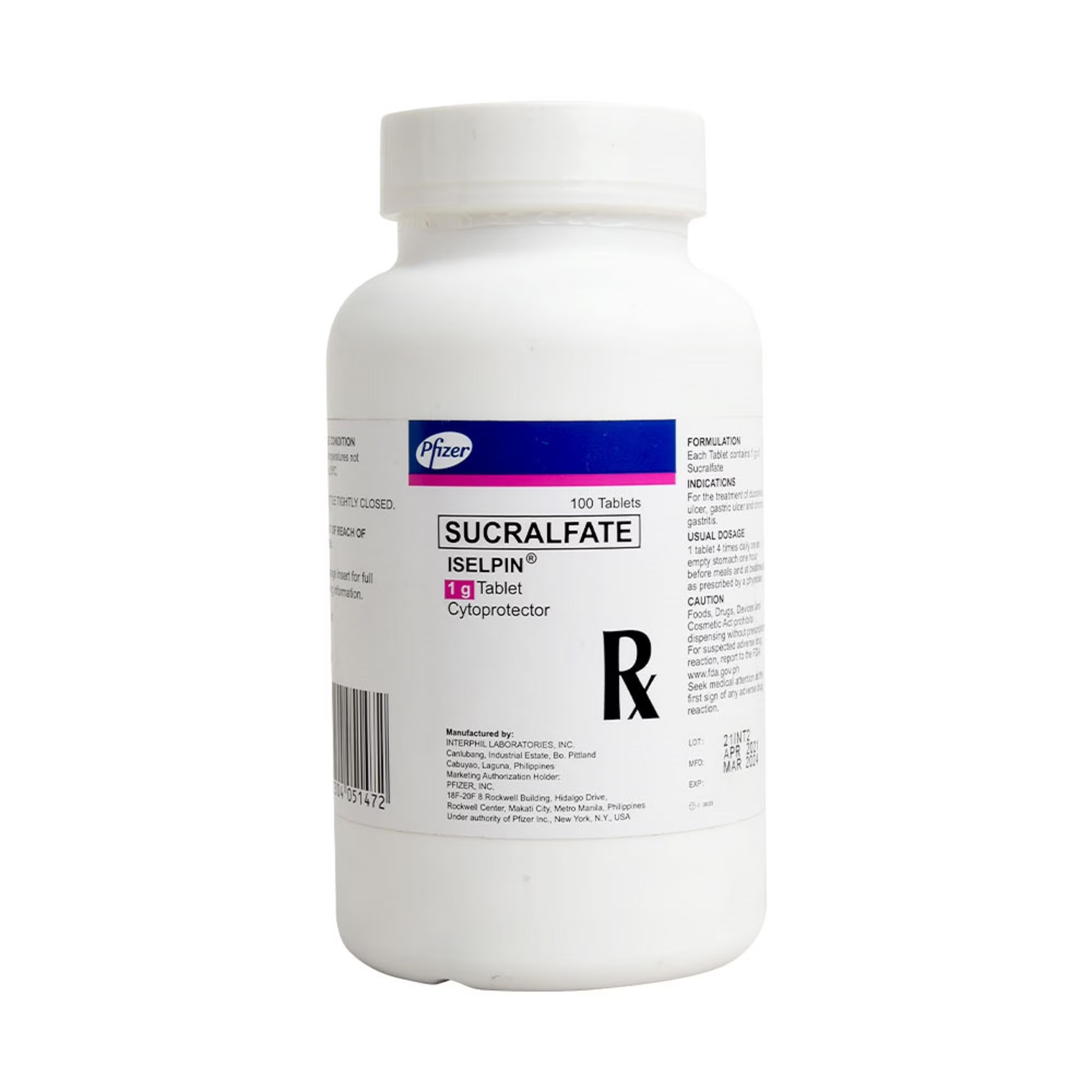
Sucralfate
Br120.00 Select options This product has multiple variants. The options may be chosen on the product page -
Nizatidine
Applications:
- Used to treat gastroesophageal reflux disease (GERD), peptic ulcers, and conditions related to excess stomach acid.
- Helps reduce acid production in the stomach, promoting healing and alleviating symptoms like heartburn.
Side Effects:
- Headache, dizziness, and constipation.
- In rare cases, can cause liver issues or confusion, especially in older adults.
Nizatidine is effective in managing acid-related gastrointestinal conditions, but it can cause mild side effects like headache and constipation. Serious side effects are rare but should be monitored, particularly in individuals with liver issues.
Br120.00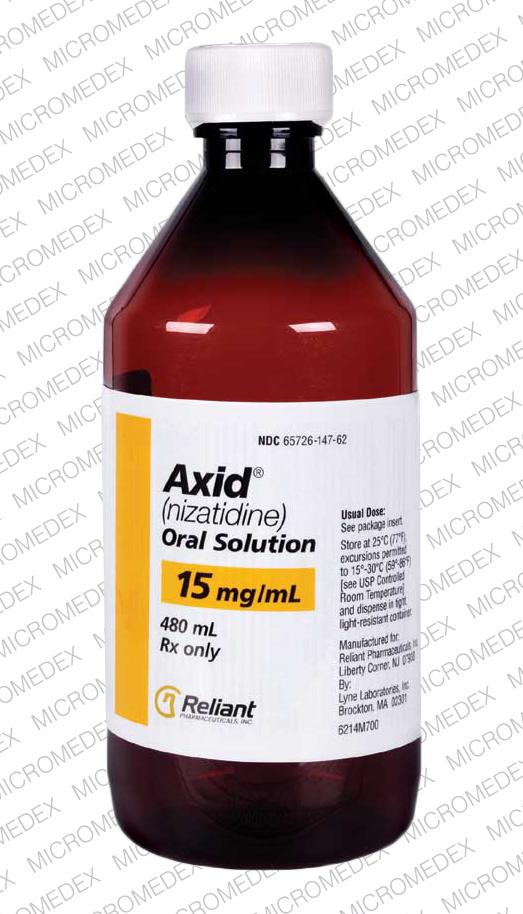
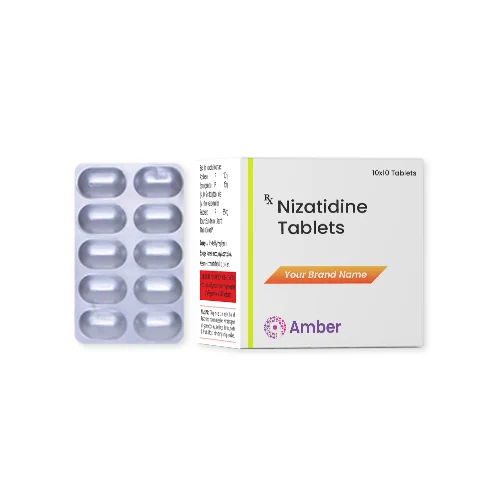
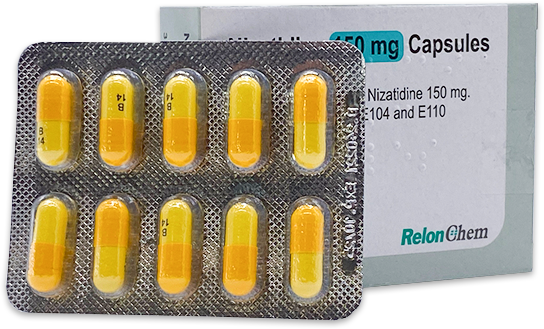
Nizatidine
Br120.00 Select options This product has multiple variants. The options may be chosen on the product page -
Chlordiazepoxide + Clidinium Bromide.
Chlordiazepoxide + Clidinium Bromide:
Applications:
- Used to treat irritable bowel syndrome (IBS) and other gastrointestinal disorders with spasm or pain.
- Helps manage anxiety and agitation associated with gastrointestinal conditions.
Side Effects:
- Drowsiness, dizziness, and blurred vision.
- Dry mouth, constipation, and urinary retention.
This combination helps reduce symptoms of both gastrointestinal discomfort and anxiety, though it can cause sedation and other common side effects like dry mouth. Be cautious when operating machinery or driving.
Br120.00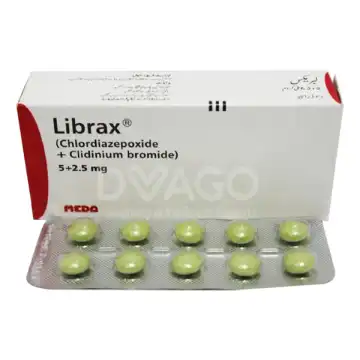
Chlordiazepoxide + Clidinium Bromide.
Br120.00 Select options This product has multiple variants. The options may be chosen on the product page



